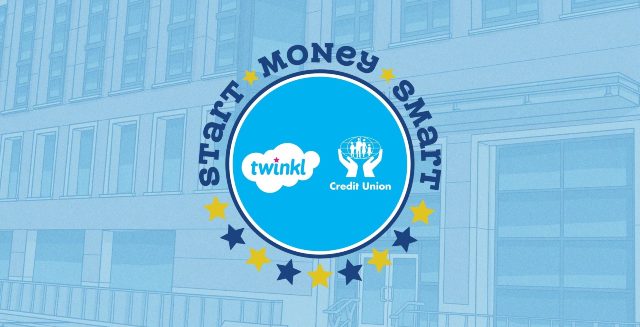Primary School Financial Education Resource

Overview
Who is it aimed at?
Start Money Smart Topics
How to Access the Resource
Start Money Smart is a primary school resource developed by the ILCU, the ILCU Youth Committee and online educational company Twinkl Ireland.
Aimed at students in primary school, the resource is tailored for each level and explains finance in a fun, easy to follow, and engaging format. It teaches students how money works with activities that include real-life scenarios, problem solving and story-telling. It also allows them to explore their relationship with money so they can make more informed decisions.
Start Money Smart has been designed for delivery by teachers in a classroom setting. Parents can also download the resource from Twinkl.ie for fun activities at home with children.
Students are taken through the resource via a set of slides and accompanying notes guide the teacher through each one. Teachers will also be provided with display items for their classrooms, which include banners, posters, and word cards.
Start Money Smart was developed for teachers and parents of children in primary level in ROI and NI.
Members, Parents and Teachers in ROI and NI can access and download the resources free, on the Twinkl.ie (ROI) or Twinkl.co.uk (NI). Links have also been provided below.
Curriculum
Start Money Smart has been adapted to align with the primary school curriculum subjects of Maths, History, and SPHE or Personal Development. Activities within the resource can be presented to pupils as part of these subjects.
The Start Money Smart resource is divided by class – with tailored activities suited to each level - from Junior Infants / Year One, to Sixth Class / Year Eleven.
The topics across each level include:
- Money and maths,
- Earning money
- Budgeting, spending and saving
- Impulse buying vs investing
- Financial literacy
- The history of a credit union and how it works
These areas are taught through interactive and engaging exercises such as planned activities, loop and prompt cards, word searches, quizzes, board games, fact files and worksheet challenges.
Examples of different topics and activities are as follows:
1. Junior & Senior Infants (ROI) / Foundation Stage (NI)
These resources focus on how money works with simple yet fun addition and subtraction problems, which fit within the subject of maths.
2. First & Second Class (ROI) / Key Stage One (NI)
Activities for first and second class or year three and four also focus on maths problems, but with real scenarios such as shopping. At this level the concepts of work-and-reward and budgeting are introduced- with resources like a reward chart for the classroom or home, and how to create a budget for a family or class trip.
There is also a section which explains what a credit union is, and how it works.
3. Third & Fourth Class (ROI) / Key Stage Two (NI)
This level builds on the concept of budgeting and saving, asking students to create a budget for a fun activity (such as a birthday party) whilst also incorporating maths problems. It helps students understand the difference between investment buying and impulse purchases through sorting activities.
A deeper knowledge of the credit union in Ireland is also provided, through lessons and interactive work.
3. Fifth & Sixth Class (ROI) / Key Stage Three (NI)
For fifth/sixth and year seven/eight, the resource looks at the topics of spending, earning and saving money with flash cards and a money saving challenge worksheet. It explores the idea of impulse buying through a ‘save or splurge’ board game, and looks at the key financial words in a financial literacy fact file and PowerPoint.
It also includes a timeline with the history of the credit union.
Teachers and parents can download the NI packs here, and ROI packs here. Links to each individual packs are below:
1. Junior-Senior / Foundation Stage
2. 1st-2nd / Key Stage One
3. 3rd-4th / Key Stage Two
4. 5th-6th / Key Stage Three